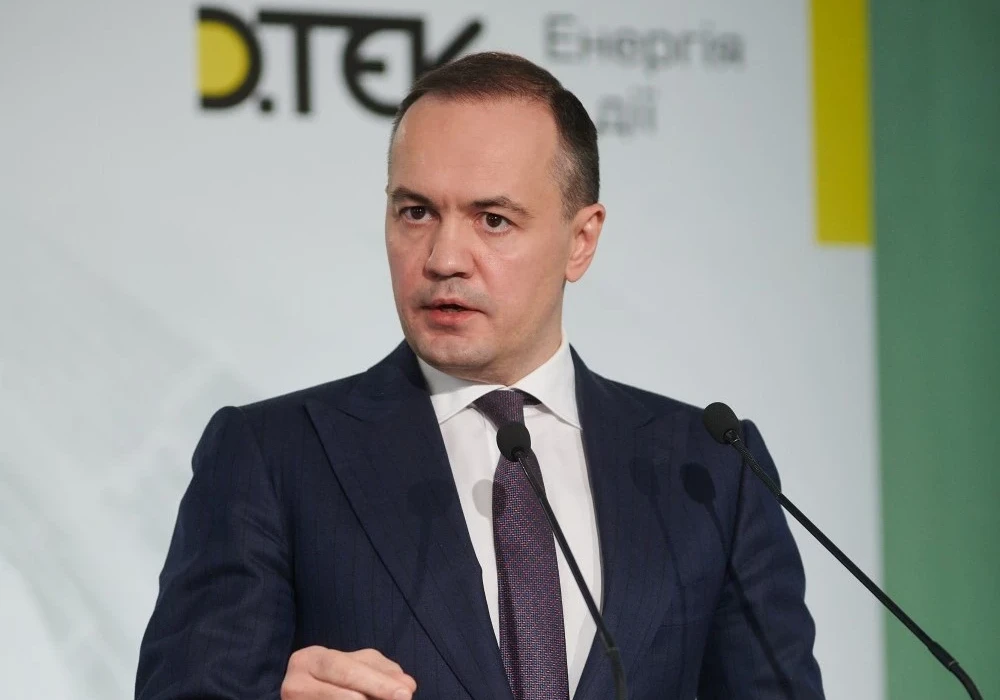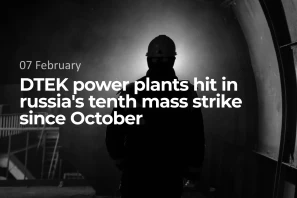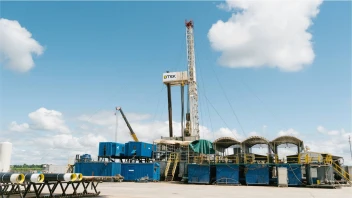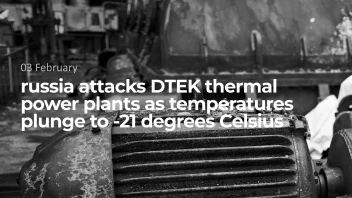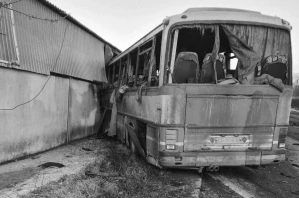- Energy minister and energy company heads address a special session at the World Economic Forum.
- They urge Europe to help maintain power supplies and to stop buying Russian energy.
- Japan concerned at risk of Fukushima-style meltdown at nuclear sites.
- International Energy Agency chief says world faces energy shock unseen since early 1970s.
Political and business leaders in charge of Ukraine's energy system urged Western companies and governments to help them keep power supplies running, ensure nuclear energy sites are secure, and to increase pressure on Russia to end the war.
"Russia is destroying our lives, our land, our infrastructure, but they will never destroy our internal unity and freedom," Yaroslav Demchenkov, Deputy Minister for European Integration at the Ministry of Energy, told a Special Roundtable on Ukraine’s Energy Crisis convened by the World Economic Forum on 11 March.
Speaking to dozens of energy company executives and industry organisations around the world, Demchenkov said that despite more than two weeks of war since Russia launched its invasion, Ukraine had largely been able to keep its power systems running.
"In this extremely hard condition, the Ukrainian energy system keeps working, providing energy for people, industry and the military." — Yaroslav Demchenkov, Deputy Minister for European Integration at the Ministry of Energy
He called for help from Western Europe and the rest of the world. And he highlighted the risk of problems if Ukraine's nuclear power facilities were attacked or not maintained.
"The biggest threat, that could affect all of Europe, is nuclear," Demchenkov said.
"Russia has crossed all red lines, is acting as a nuclear terrorist. We all are afraid of a nuclear war, but now for the first time in history we have a major war in a country with over a dozen nuclear reactors and thousands of tonnes of radioactive spent fuel."
He added: "Every day Europe is balancing on the edge of nuclear disaster due to the Russian action. If we don’t stop it now it will get worse."
Speaking from a country with particular insight into the safety risk of nuclear power plants, Tatsuya Terazawa, head of the Institute of Energy Economics Japan, compared the Ukraine situation with that of the Fukushima power plant which suffered a meltdown exactly 11 years ago.
Nuclear threat
"It [Fukushima] was caused by a tsunami, a natural disaster. But it is quite unfortunate that this time another nuclear disaster can be caused by human deeds. So it makes us very very much worried," he told the meeting.
He said a power cut to a nuclear plant, and any lack of personnel to deal with an emergency, would pose a grave danger.
"A military attack can at any point disfunctionalise the power supply of the nuclear power plant in Ukraine and we are extremely worried."
Minister Demchenkov urged foreign powers to persuade Russia to accept 30-km demilitarized zones around all nuclear facilities.
"Act swiftly and strongly. Every day of delay is increasing the risk of an accident and potential nuclear catastrophe," he said.
IEA warns of 'major energy shock'
Underscoring the impact of the war on global energy supplies, the head of the International Energy Agency, Fatih Birol, said: "Globally, I believe we have two main immediate challenges: how to maintain the global energy security but at the same time how to minimise, if not nullify, Russian energy revenues."
"The issue is, dear colleagues, Russia is today the number one top oil exporter of the world and top natural gas exporter of the world and with these events, I believe we may well be entering a period of a major energy shock, which could be compared to what we have seen in the 1970s."
The IEA has released a 10-point plan to reduce Europe’s reliance on Russian natural gas.
The head of utility company DTEK, Maxim Timchenko, said Ukraine was managing to keep goal and gas supplies at pre-war levels, and he said a planned integration of the Ukrainian electricity grid with Europe's would provide and extra 15% of energy reserves that Ukraine could call on if Russia attacked a power plant or distribution line.
And he added his call for heavier sanctions on Russian energy exports.
“Russian oil, Russian gas, any Russian products should be toxic and [it] should be immoral to buy it,” Timchenko said.
Minister Demchenkov and heads of Ukrainian energy companies DTEK and Naftogaz issued their own list of requests for help from the rest of the world, stretching from immediate embargoes on Russian oil, gas and LNG, to the supply to Ukraine of spare parts for energy infrastructure.
Demchenkov said Europe and the rest of the world had a self-interest in helping Ukraine.
"The war he started in Ukraine is a clash of civilisation for Putin. Ukraine is not the goal,. The West is the goal and target. Ukraine is the battlefield and the future of Europe is decided here. The future of Europe is at stake."



